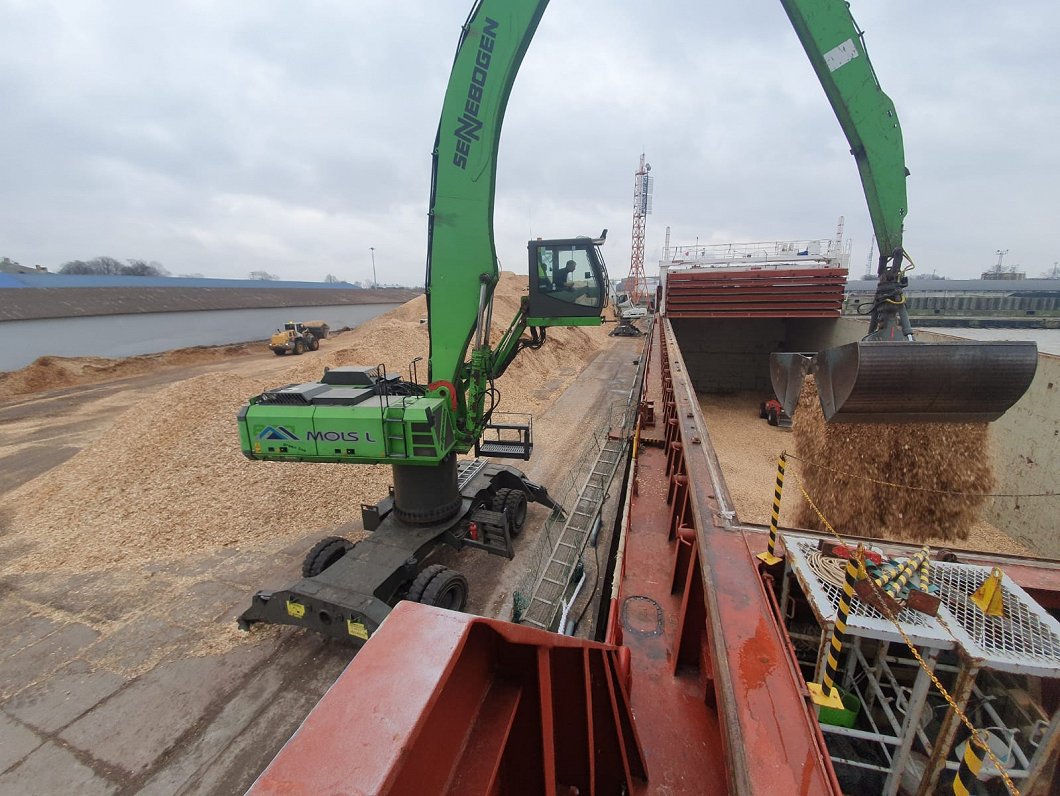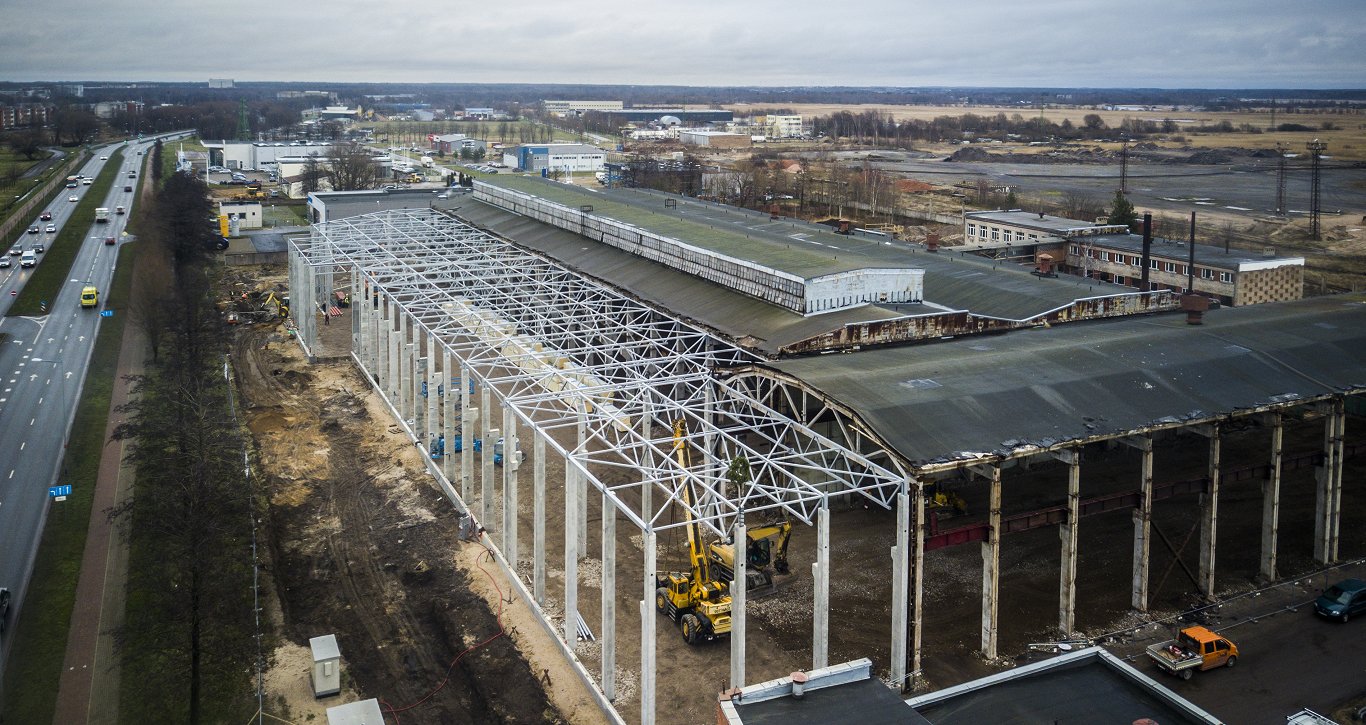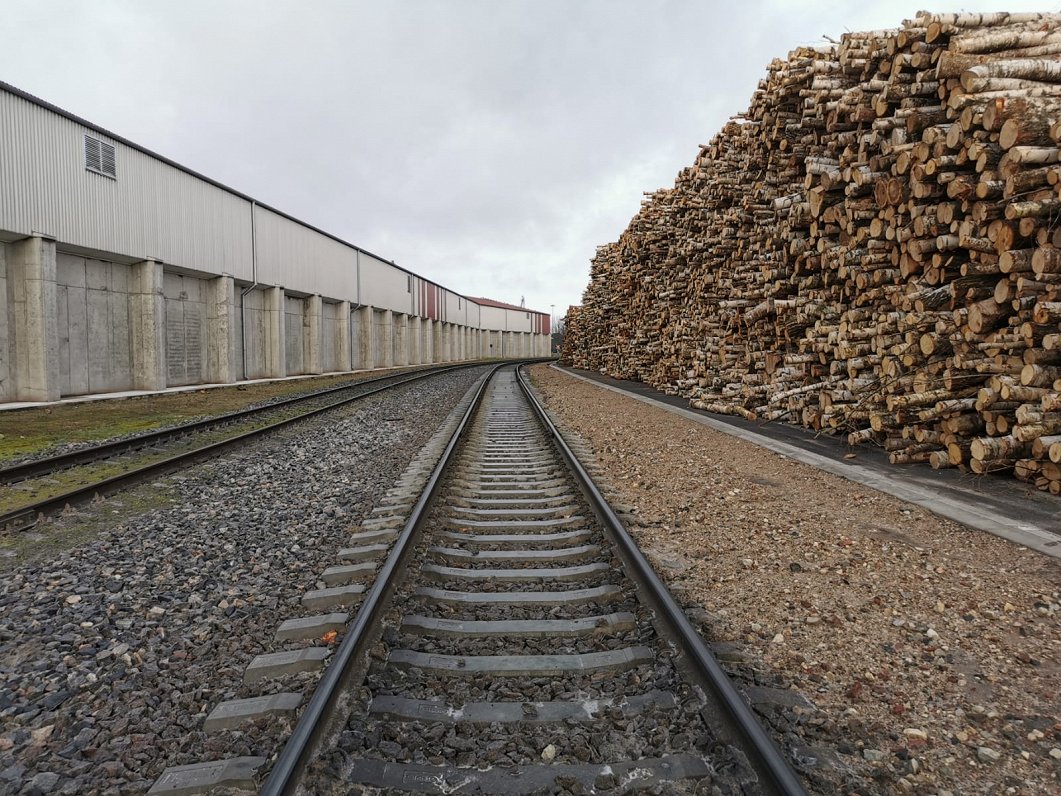The Liepāja SEZ board has previously signed two short-term agreements regarding the territory use. The Mols L agreement allows for them to use any of the material stacks on the territory for developing the storage areas.
"Ten years ago those [materials] were actively used in road construction. We have the opportunity to create quality areas with long-term use,” said Mols L Board Chair Jānis Zvirbulis.
He said they're working at full speed to even the 4.5 hectare territory and get it ready for timber storage. There are already several visible stacks of wood at the Liepāja Port that Mols L manages. They also manage the transshipment and storage of general and bulk cargo.

"For two years we've been evaluating and analyzing the use possibilities of the "Metalurgs" territory for a specific client. Green energy is developing in Europe and here as well, the outlook shows increasing consumption. We needed an extra space outside the port territory for storing timber, which gets processed into wood chips. Then we transport it to the port, load it onto ships and export it,” explained Zvirbulis.
In January the Liepāja Port cargo turnover increased by 0.4%. In addition to the agreement with Mols L, Liepāja SEZ Manager Jānis Lapiņš said that they have a second agreement for use of the “Metalurgs” territory with “Ekers Stividors” for use of the storage facility and partial use of the railroad, along with another company. However use of the railroad will require additional investment, as some of the sections haven't been used.
The former “Liepājas metalurgs” was meant to become an industrial park in 2018, but instead in September Liepāja SEZ acquired 10 properties spanning 60 hectares. Along with the properties belonging to the Liepāja municipality and a company called “FeLM”, the territory spans 120 hectares.
“We financed the deal with credit, and we made a decision so that we can create a cash flow to the specific territory today – rent out individual territories in the short-term, so that economic activity returns to the area,” said Lapiņš.
“The infrastructure is good, power supply is good, the territory is broad, it could contain seven to eight factories. I think that within the next five years the territory will fill up. Good location, center, close to the port, internal railroad, good logistics. You have to know how to make an offer and understand ourselves what we want on this territory,” said Zvirbulis.

A new factory is already being constructed on the “Liepājas metalurgs” territory. Caljan Rite-Hite Latvia produces telescopic belt conveyors for loading and unloading small packages, and they are building their factory in the former mechanical workshop space. All of the company's products are exported.
As previously reported, in 2016 the Liepāja regional court ruled “Liepājas metalurgs” steelworks insolvent. The insolvency claim was filed by Latvia security company G4S and finance firm TGD Līzings. According to the plaintiffs, the troubled steelworks owe about €257,000 to both companies.
The plant, based in the port city in south-western Latvia, was previously declared insolvent after it failed to repay a state-guaranteed loan to an Italian bank. The government sold the plant to little-known Ukrainian investors, KVV Group, a scrap metal dealers firm, in late 2014. “Liepajas Metalurgs” was renamed “KVV Liepajas Metalurgs” and officially re-opened on March 6, 2015, but soon started having problems again.
The company has had difficulties paying its electricity bills and wages to workers. It has also missed the deadline for a €2.7 million payment to the Latvian state, as part of the extremely favorable conditions under which it acquired the plant. The company currently owes about €65m to the state. At its peak it was the largest employer in the city of Liepāja. Closing the steelworks dealt a blow to the Liepāja economy, the third-largest city in Latvia.





























